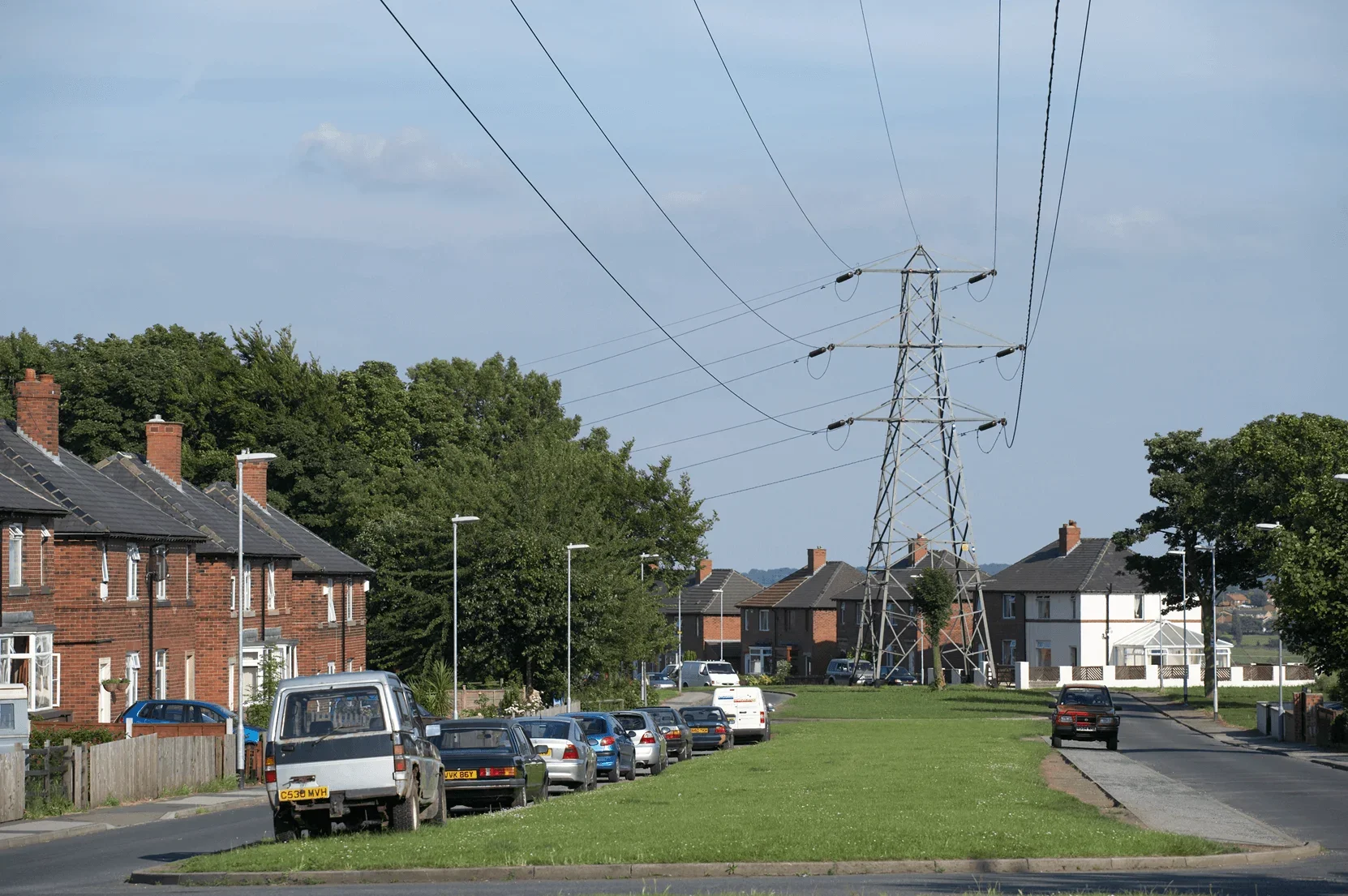BUSINESS ENERGY
How to get a business energy audit to save money and boost efficiency
Read time: 5 minutes
By Les Roberts, Business Energy Expert
8th January, 2026
Running a small business means watching every penny, and those pence per kilowatt hour rates quickly turn into pounds on your business energy bills. Especially if your premises and people aren't the most energy-efficient.
A business energy audit is a smart way to take control of your energy usage, spot areas where you're wasting money, and find simple ways to become more efficient.
Let's take a look at everything you need to know about business energy audits, including what's involved, how they can help, how to get one, and whether it’s worth the effort for your business.

In this guide to business energy audits…
- What a business energy audit is and why it matters – Understand how an energy “health check” of your premises helps cut waste, reduce bills, and boost sustainability.
- What a typical business energy audit includes – See how bills, buildings, equipment and staff habits are reviewed to pinpoint where your business is wasting energy.
- Different ways to get a business energy audit – Compare DIY audits, supplier-led reviews and professional assessors so you can choose the right approach for your budget and goals.
- What happens during a professional audit visit – Learn how data collection, site inspections and tailored reports translate into practical recommendations and savings.
- How to act on audit findings for long-term savings – Discover how to prioritise actions, build an improvement plan and track results to lower costs and carbon over time.
What is a business energy audit?
A business energy audit is a detailed review of how your business uses energy. It looks at things like lighting, heating, equipment, insulation, and even your habits – all with the aim of spotting where energy is being wasted and what can be done to improve efficiency.
Think of it like a health check for your business premises. The end goal is to help you cut unnecessary energy use, reduce your bills, and make your business more sustainable.
Depending on your business size and setup, an audit might involve:
- Analysing your past energy bills
- Checking insulation, windows and heating, ventilation, and air conditioning (HVAC) systems
- Reviewing how staff use equipment
- Suggesting changes to your energy contract or supplier
An energy audit can be done internally by someone in your team or externally by a qualified assessor or energy consultant. The more detailed the audit, the more insights you’ll get into how to save.
What are the benefits of an energy audit?
If you’re running a small business, an energy audit can deliver a whole range of benefits — from cutting costs to boosting your green credentials.
- Lower energy bills - Audits often reveal hidden energy drains, like equipment left on overnight or inefficient lighting. Fixing these can help cut the amount you spend on business electricity and gas.
- Improved efficiency - An audit can help you make the most of your energy usage. That means fewer wasted hours heating empty rooms or powering idle machines.
- Better budgeting - Understanding your energy usage helps you forecast more accurately. This can mean no more unexpected bill spikes or nasty surprises.
- Greener business practices - Cutting down on energy use is good for the planet. If you’re working towards net zero, or simply want to show customers you care, an audit is a solid first step.
- Easier compliance - Some sectors must meet strict energy efficiency rules. An audit can highlight where you’re falling short and what you can do about it.
What are the drawbacks of an energy audit?
While energy audits are generally worthwhile, you need to consider the drawbacks, especially if you’re running a tight operation.
- Upfront costs - Professional audits aren’t always free. Depending on the size of your business and the level of detail you want, prices can range from a few hundred pounds to several thousand. To avoid these costs, you can carry out you own audit or see if your business energy supplier offers free or subsidised audits.
- Time commitment - Even a basic audit can take time, especially if you need to track down paperwork, give access to your site, or involve multiple team members.
- Implementation costs - You might uncover issues that are costly to fix, like poor insulation or outdated machinery. You’re not obligated to make changes, but big upgrades can add up.
How long does an energy audit take?
A basic audit might be complete in a few hours, but a full professional review could take several days, depending on your business size.
What does a business energy audit include?
An energy audit is more than just checking your electricity meter. It covers a wide range of areas across your business and premises. Here are some of the typical features:
Reviewing your energy bills
The first step is often analysing your past energy use – usually over 12 months. This helps spot any unusual patterns, seasonal spikes, or areas where you're using more energy than expected.
Looking at your building and equipment
An auditor will examine things like insulation, windows, doors, and roofing to see how well your building retains heat. They’ll also check the condition and efficiency of your heating and cooling systems, lighting, and other appliances.
Monitoring energy habits
It’s not just what you use – it’s how and when you use it. A good audit will look at staff habits, operational hours, and any processes that could be using energy inefficiently, like leaving equipment on overnight or using outdated machines.
Identifying quick wins and long-term fixes
You’ll usually get a report at the end with simple changes you can make straight away, like switching to LED bulbs or adjusting your thermostat, as well as longer-term recommendations like upgrading insulation or investing in energy-efficient equipment.
Will an audit disrupt my business?
Auditors will generally work around your schedule, so there should be little or no disruption.
Who should get an energy audit?
You don’t need to be a large corporation to benefit. An energy audit can be particularly useful in the following circumstances:
- Your bills have suddenly gone up, and you’re not sure why
- You’ve moved to new premises
- You use energy-intensive equipment
- You’re interested in switching to a greener supplier or installing renewable tech
An energy review can even help small offices, restaurants, and shops make meaningful, money-saving changes.
How to get a business energy audit
There are a few different routes you can take, depending on your budget, time and goals. If you're strapped for cash, it might be best to carry out an initial audit yourself. Or you could ask your business energy supplier if they offer free energy audits to customers.
Here are your main options.
1. Do it yourself
If your business is small and your energy use is relatively straightforward, you might be able to carry out a basic audit yourself.
Start by gathering your energy bills for the past year and noting down how much gas and electricity you use each month. Look for patterns or unexpected spikes.
Next, walk through your premises and ask questions like:
- Are lights or machines left on when no one is using them?
- Could you switch to more energy-efficient equipment?
- Are doors and windows properly sealed to keep heat in?
- Is your thermostat set too high or low?
Make a list of any areas where energy might be wasted and note what changes could be made.
While this approach won’t give you the depth of a professional audit, it’s a great starting point – and costs nothing to do.
2. Use your energy supplier
Some business energy suppliers offer audits as part of their service, especially if you’re a current customer or switching to a new tariff. These might include:
- Remote energy reviews based on your bills
- On-site visits with tailored recommendations
- Access to usage-tracking software or apps
Check your account dashboard or speak to your supplier to see what’s on offer.
3. Hire an independent energy assessor
For a more detailed review, consider bringing in an expert. A professional auditor or consultant will use specialist tools like energy meters, thermal cameras, and airflow testers to give you a full picture of your energy performance.
They’ll also be able to tailor their recommendations based on your business size, budget, and goals. Some may even help you apply for funding or government support to make improvements.
Costs can vary depending on the size and complexity of your premises, but many businesses find the savings uncovered by an audit quickly outweigh the upfront cost.
If you go down this route, look for professionals accredited by:
- CIBSE (Chartered Institution of Building Services Engineers)
- Energy Institute
- ESOS-qualified assessors (for larger businesses)
This option is best if you’re planning a big upgrade or want to apply for energy efficiency funding or grants.
What happens during a professional audit?
A full audit typically involves three main steps:
- Data collection - The auditor will gather data about your energy usage — past bills, meter readings, building layout and equipment lists.
- Site inspection - They’ll visit your premises and check insulation, lighting, heating systems, controls and processes. They'll also observe how your staff use energy in daily tasks.
- Report and recommendations - You’ll receive a written report outlining where you’re using (and wasting) energy, practical, tailored recommendations, and estimated cost savings and payback periods
Some auditors will also help you implement changes or monitor progress afterwards.
How much does a business energy audit cost?
Business energy audit costs vary depending on your business size and the depth of the audit. Here’s a rough guide:
| Audit Type | Typical Cost Range |
| Basic DIY audit | Free |
| Supplier audit | Free – £200 (if charged) |
| Independent audit | £300 – £2,000+ |
For micro and small businesses (under 10 staff), you might only need a basic site walkthrough costing £300–£500. Large and industrial businesses and those with multiple sites will cost more.
What happens after the audit?
Once you’ve got your report, you then need to put the recommendations in place. Your business energy audit report should include:
- A list of low-cost, quick fixes (like switching bulbs or sealing draughts)
- Medium-term upgrades (like new heating controls or better insulation)
- Long-term investments (like solar panels or energy-efficient machinery)
You don’t have to do everything at once, so focus on the changes that have the biggest impact and lowest cost. You might also consider:
- Switching to a cheaper business energy deal
- Fit a smart meter or usage tracking tools. If your business is high-consumption, you'll probably already have a half-hourly meter
- Applying for green business grants or tax incentives
How to cut your business energy bills
Most small businesses will benefit from an energy audit. Even a basic audit can highlight quick wins and set you up for bigger savings down the line. If you want to cut costs, reduce waste and show customers you care about sustainability, a business energy audit is a smart move.
Being more energy-efficient is a great way to lower your energy bills. Once an audit has revealed how and where you can save energy, getting into good energy habits should help keep costs down in the long term. It's also a good idea to make sure your business is paying the cheapest possible rates for business gas and electricity.
To start your business energy comparison, call our business energy experts on 0800 140 4667 today.
Business energy audit (MHHS) FAQs
Still unsure about whether a business energy audit could work for you? Check out the answers to our most frequently asked questions.
What is a business energy audit?
A business energy audit is a detailed review of how your company uses gas and electricity, designed to uncover waste and identify cost‑saving efficiency improvements.
How can a business energy audit save my company money?
An energy audit can highlight hidden energy drains such as inefficient lighting, old equipment or poor controls, helping you cut unnecessary usage and lower bills.
What does a business energy audit usually include?
A typical audit reviews your past energy bills, building fabric, heating and cooling systems, lighting, equipment and staff behaviour to spot where improvements are needed.
Should I do a DIY energy audit or hire a professional?
Smaller businesses can start with a simple DIY audit, but larger or more complex sites often benefit from a professional assessor who can provide deeper analysis and tailored recommendations.
How long does a professional business energy audit take?
The time needed for a professional audit varies with site size and complexity, but it usually involves at least one site visit plus time to analyse data and prepare a report.
Who can carry out a professional business energy audit in the UK?
Professional business energy audits are typically delivered by accredited energy consultants or engineers, such as CIBSE, Energy Institute or ESOS‑qualified assessors.
What should my business do after receiving an energy audit report?
After an audit, you should prioritise quick wins, create an action plan for bigger upgrades, and monitor energy use to make sure recommended changes deliver the expected savings.
Is a business energy audit worth it for small UK businesses?
Yes, even small businesses can quickly recoup the cost of an audit through lower energy bills, more efficient operations and progress towards sustainability or net‑zero targets.
Is it time to compare business energy quotes and switch?
Take the hassle out of sorting your next energy deal. We compare from a panel of suppliers. You choose the rates that are right for your business.
By clicking ‘COMPARE TODAYS RATES’ you agree for us to search your current energy supplier and usage though industry held data. Enter manually
Our experts share essential knowledge on business energy
All related guides
View all energy guides
- A complete guide to business energy for offices
- A complete guide to business energy for restaurants
- A complete guide to business energy for shops
- Average business energy consumption - How much does your business use?
- How to get a business energy audit to save money and boost efficiency
- A complete guide to business energy bills
- Business energy brokers – everything you need to know
- What are no standing charge business energy tariffs?
- Business energy efficiency: how to save energy at your business
- Change of Tenancy - Moving business premises and your energy contract
- Commercial property landlord energy advice
- Energy performance certificate for business
- A complete guide to half hourly electricity meters
- How does the energy market affect the cost of your energy bills?
- How switching to energy efficient lighting can save your business money
- How to pay your business energy bills to save money and avoid late fees
- How your business credit score affects your energy deals
- Compare large and industrial business energy prices
- Prepayment meters for business: The complete 2025 guide for SMEs
- What are renewable energy certificates and REGOs for small businesses?
- Renewable Energy for Business
- Business Smart Meters: Your Guide to Savings, Installation, and Supplier Comparison
- Commercial solar panel electricity
- The nuclear RAB levy explained: what it means for your business
- A business guide to time-of-use energy tariffs
- Business energy tariffs explained
- Everything you need to know about the Smart Export Guarantee (SEG)
- Compare small business & micro business energy prices
- Compare the cheapest business energy suppliers
- What is the Climate Change Levy?
- Business energy meter installation: Your complete guide
- Multi-site meters and business energy management
- How much is VAT on business energy?
- What happens when your energy supplier goes bust?
- What is a letter of authority (LoA) for business energy?
- What is Market-wide Half-Hourly Settlement (MHHS) and how does it work?
- What is business microgeneration?
How to switch business energy suppliers with MoneySuperMarket
We can switch your business to a better energy deal in three simple steps
1
We find your details
Just enter your business address and we'll use industry data to accurately find and understand your energy usage.
2
We talk through your quotes
One of our UK-based energy experts will search our supplier panel and give you a call to talk through your quotes.
3
You choose the deal you want
With all the information to hand, you choose the deal that best suits your business and we’ll handle the switch for you.
Compare today’s business energy rates
By clicking ‘COMPARE TODAY'S RATES’ you agree for us to search your current energy supplier and usage though industry held data. Enter manually






